14. The Flower of My Secret
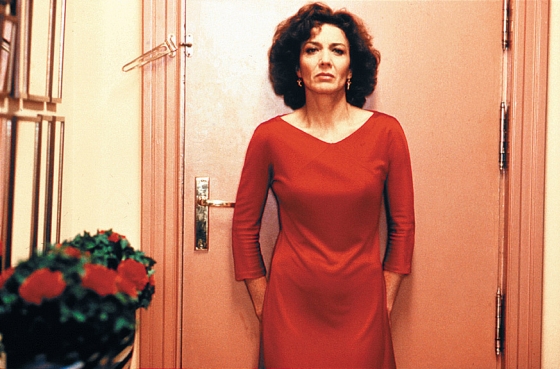
Just because The Flower of My Secret is one of the most forgettable Almodóvar movies doesn’t mean it’s bad. It’s still a very good movie. It just doesn’t excel enough to stick with the viewer. It’s more mature than his previous flicks, but it unfortunately sticks too close to genre conventions to stand among this director’s greatest achievements. Simply put, it feels too familiar when compared to his more creative standouts. The failure to take risks ultimately puts the movie at a disadvantage.
This overt familiarity is mostly a problem when viewers choose to make comparisons. By itself, The Flower of My Secret is a well-written melodrama with fascinating characters and thematic depth.
When viewed alongside something like Law of Desire, it has a tendency to feel like half-baked copycat. Half-baked has such a negative connotation that it seems unfair to use the term, but it’s what best applies to Almodóvar’s 1995 drama. The man set the bar high early in his career, and he keeps making hits as time progresses. The Flower of My Secret simply isn’t one of those hits.
This in no way means that the movie should be avoided, especially if you’re a fan of the director’s work. The best approach is to keep your expectations in check. The Flower of My Secret is hardly groundbreaking stuff. It’s still a smart character study with an exemplary starring performance. It just fails to make an impact in the long-run.
13. Matador
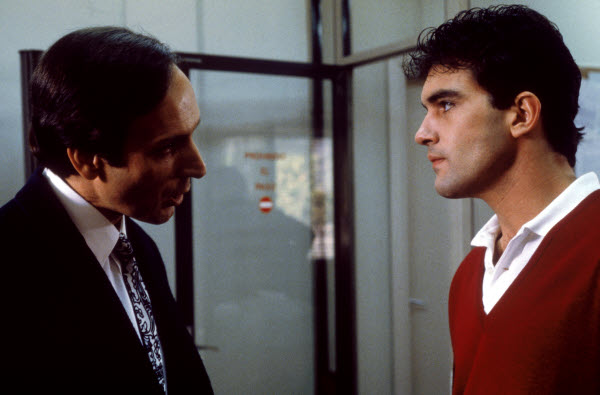
In Almodóvar’s book about himself, he stated Matador is one of his weakest films alongside Kika. While this list doesn’t go as far as to call it one of the bottom two, there are definitely elements of Matador that need tweaking. This is a lesser effort from the brilliant director, but it has enough working in its favor to garner a recommendation from this particular critic. It faces a problem found in several early Almodóvar movies. Viewed next to his future work, it feels like a sort of trial run.
In other words, it features a lot of typical Almodóvar conventions. The themes are similar to most of his work, the characters seem a little familiar, and the genre can’t easily be defined. It did what his future movies would do, but it doesn’t do it as well. The plot isn’t unique, the humor isn’t as clever, and the characters aren’t as memorable. It sets the stage for the future, but now that the future has happened, it’s not as easy to recommend.
12. Live Flesh
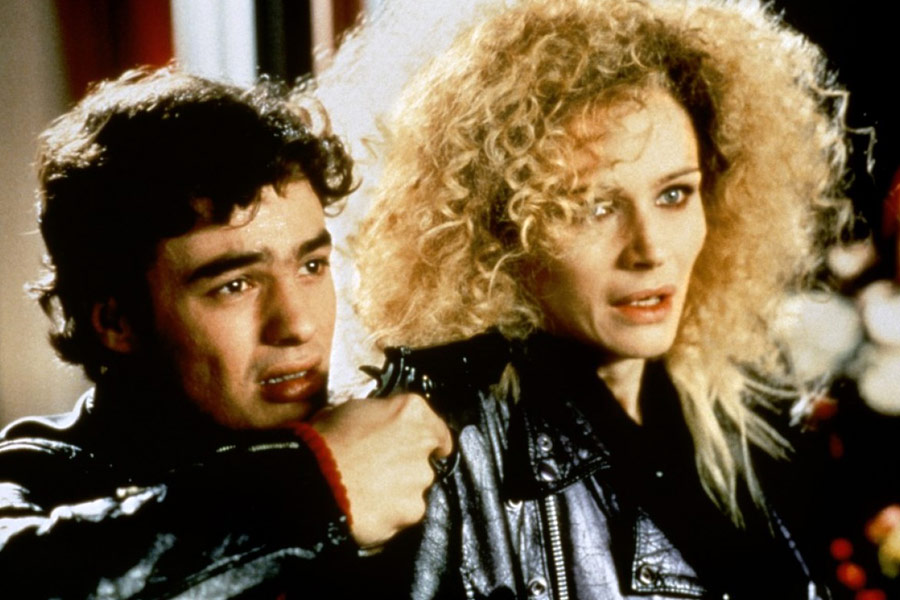
Upon release, Live Flesh was dubbed the most mature and understated film in Almodóvar’s career. Up to this point, he was slowly approaching greater levels of maturity with each subsequent movie. To be fair, Live Flesh is easily his most mature pre-21st century movie. The tone is more somber, the violence is grittier, and the themes are more mature. This more serious approach mostly works in the movie’s favor. It only feels like a disadvantage when the plot comes to several screeching halts along the way.
The story revolves around two police officers who attempt to stop a hostage takeover in a young drug addicted woman’s apartment. It’s not completely foreign for Almodóvar to take a crack at a crime thriller, so the set-up isn’t exactly the selling point. The characters are the real draw.
The cast is made up of Javier Bardem, Francesca Neri, and Liberto Raba. They do a great job of bringing their well-written characters to life. Even when the plot stalls (and it certainly does), the movie always has interesting characters to fall back on. This, combined with the pleasant change in tone, makes for a solid if unspectacular effort from Spain’s most noteworthy director.
11. What Have I Done to Deserve This?
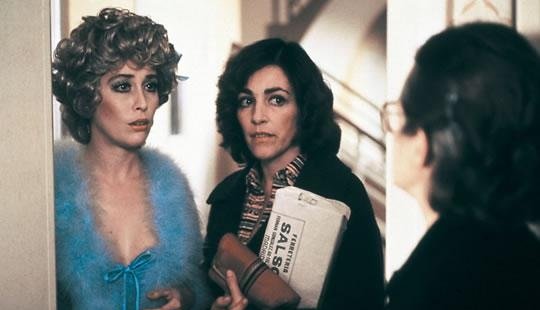
Though Almodóvar’s first three films weren’t exactly misfires, this is his first release that actually displays the type of talent we would see later in his career. It’s the first movie in his career that feels unmistakably “Almodóvarian.”
It masterfully combines comedy and drama in a way that’s undeniably clever and fascinating. In other words, it does precisely what viewers have come to expect from this filmmaker today. It was the first telltale sign that we have a gifted artist sitting behind the camera. It’s not perfect, but the flaws are relatively minor this time around.
Pepi, Luci, Bom, Labyrinth of Passion, Dark Habits, all faltered due to their lack of focus and inconsistent tones. What Have I Done to Deserve This? smartly addresses these issues. Rather than coming across as a jumbled mess of good ideas, this movie actually feels fairly cohesive. The mixing of genres feels purposeful this time around, and the subplots all add to the story. The movie still feels experimental, but the risks actually pay off. Still, it’s hard to praise a movie just for staying focused.
The film actually shines brightest when it focuses on the characters. Almodóvar has since proven that he’s brilliant when it comes to character studies. However, prior to the release of this movie, he had written reasonably well-developed characters that didn’t quite stick with the viewer after the credits roll. This time around, the audience finally gets a cast that feels wholly unique and memorable. The script brings together a delightful crew of characters, and the cast only makes things better.
What Have I Done to Deserve This? isn’t as intellectual as his top-tier movies, but it’s still a finely-crafted piece of Spanish cinema. Almodóvar corrected his past errors and made a movie with just the right amount of heart. It’s a great character study that wisely uses dark comedy to tell a story that feels distinctive and, more importantly, enjoyable.
10. Broken Embraces

Broken Embraces is occasionally too ambitious for its own good. Two overarching storylines battle for supremacy in Almodóvar’s longest film. At over two hours, there’s definitely a lot to take in. Despite the scale of the movie, Broken Embraces remains Almodóvar’s most personal and introspective movie. It has a tendency to reach too far, but it’s still a moving romantic thriller with a revelatory performance from Almodóvar regular Penelope Cruz.
Because the film chooses to combine a film-within-a-film love story and a paternity mystery, Broken Embraces feels a bit scatterbrained. The narrative is often intriguing, but there’s also too much of it. The hefty story gets in the way of character development at times. Considering Almodóvar’s skillful writing of characters, this can be a bit of a bummer. The characters are hardly underdeveloped, but they don’t compare to what you would find in his greatest works.
All this negativity makes it seem like the movie should be lower on the list, but it has multiple aces up its sleeve. For one, the cast is phenomenal. In fact, Broken Embraces has one of the greatest casts in any Almodóvar movie. Penelope Cruz gives her second best Almodóvar performance behind Volver.
Meanwhile, Lluís Homar, Blanca Portillo, and Tamar Novas also do an outstanding job of bringing attention to the most emotional moments in the film. Emotion is the other “ace.” The movie may stumble when it comes to character development and plot, but it never fails to make the audience feel. You’ll laugh, you’ll cry, and you’ll gasp. As cliche as it may sound, the movie really is an emotional rollercoaster.
So yes, it’s definitely flawed. After the movie enjoyed early critical acclaim, it has since gotten an unfair amount of backlash. It fails to live up to its promise, and that’s because it tries too hard to do too much. When it does live up to its potential, it’s a poetic look at romance, repression, and voyeurism. When it doesn’t, it’s surprisingly easy to forgive.
9. Julieta

Julieta is Almodóvar’s most approachable movie. It’s smaller in scale, it’s less heavy-handed, and the story is more focused. While it’s occasionally disappointing to see a more straight-forward Almodóvar movie, Julieta is still a memorable drama worth the attention. Thanks to two stunning performances, an impressive script, and eye-popping cinematography, Almodóvar’s twentieth film never feels like a disappointment. It may not be his most provocative creation, but it’s still an engaging movie.
Julieta owes a lot to its lead actresses. Emma Suárez and Adriana Ugarte are both Almodóvar newbies, but they feel right at home in Almodóvar’s quirky world. We already knew that Almodóvar was capable of directing Penelope Cruz and Cecilia Roth, so it’s great to see him switching things up by including two relatively unknown actresses.
The unknown actresses in question dazzle every step of the way. Suárez delivers a subdued performance that somehow always hits an emotional sweet spot. Meanwhile, Ugarte’s slightly more expressive performance starts solid and ends spectacular.
The downside has already been stated. This isn’t as creative as your average Almodóvar movie. The script isn’t necessarily anything original, the characters are archetypal, and the underlying themes are recycled from his past movies. That means the movie must constantly rely on its other strengths in order to be successful.
Thankfully, it has plenty of strengths that help make up for the lack of creative oomph. Compared to some of his greater works, Julieta feels like a minor masterpiece. Still, a minor masterpiece is better than no masterpiece at all.
8. Bad Education
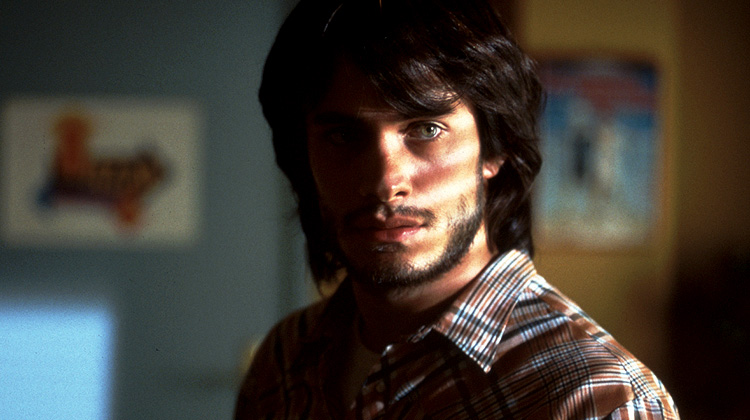
Almodóvar’s 21st century films have never been all that upbeat, but you’d be hard-pressed to find a more pessimistic movie in his filmography. Bad Education is a harrowing movie to sit through, but it’s also breathtaking. It’s somber and depressing, but that downbeat tone is necessary to get the central message across.
Really, everything feels necessary in the movie. It’s one of those rare movies where it feels as if nothing deserves to be taken out. Even the most minor aspects make a difference when it comes to telling this haunting tale.
Bad Education is one of the Almodóvar’s greatest movies about homosexuality. Most of his movies tend to include the subject in some way, but few actually make it the primary focus. While it’s not as groundbreaking as another one of his LGBT-centered movies (which will remain nameless for the sake of the list), it’s still a touching reflection on identity. Almodóvar is one of the greatest queer filmmakers of his generation, and with movies like Bad Education, it’s easy to see why.
Despite the fact that the plot isn’t as smart as the themes, Bad Education is still high-quality Almodóvar. There’s a lot of competition within this list, but keep in mind how close each of these movies are in terms of quality. It may not be a top-five movie, but it’s still a crowning achievement.